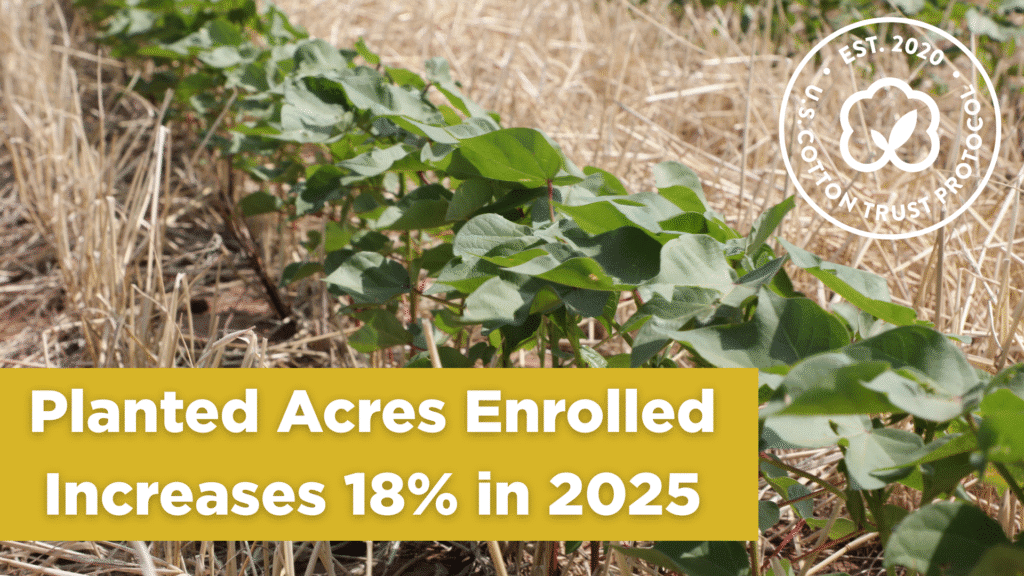Land is finite and precious – making up the basis of our communities and ecosystems. It provides the environment and resources needed to grow food and fiber for the global population and caring for it is vital. As the population continues to grow, more food and fiber are required – but there is no easy way to increase the amount of land available on the planet.
This is why growers must be efficient and responsible with their land use, which is calculated as the inverse of yield. But what does that truly mean? Cotton yield is measured as the quantity of raw cotton fiber harvested per acre. Yield is influenced by the genetics of the plant, management practices, and environmental factors such as temperature, radiation, humidity, and water availability.
In 2023-24, Trust Protocol grower members used 43 square feet to produce a pound of cotton fiber, which is a 15% improvement compared to the 2015 baseline, as well as increased their yield. Therefore, Trust Protocol growers are meeting the 2025 National Goal on land use efficiency, which is a 13% increase.
So, how did Trust Protocol growers achieve this level of land use efficiency?
When it comes to sustainable cotton production, growers take a whole-farm approach to secure the best yields and increase efficiency of land through precision agriculture and innovative practices.
Growers use GPS mapping, weather monitoring and seed technology, which allows them to be precise and more efficient with their land. U.S. cotton growers understand that for the land to produce the food and fiber needed, we have to care for it.
To learn more about the Trust Protocol’s five other environmental metrics and data, check out the 2024 annual report.




